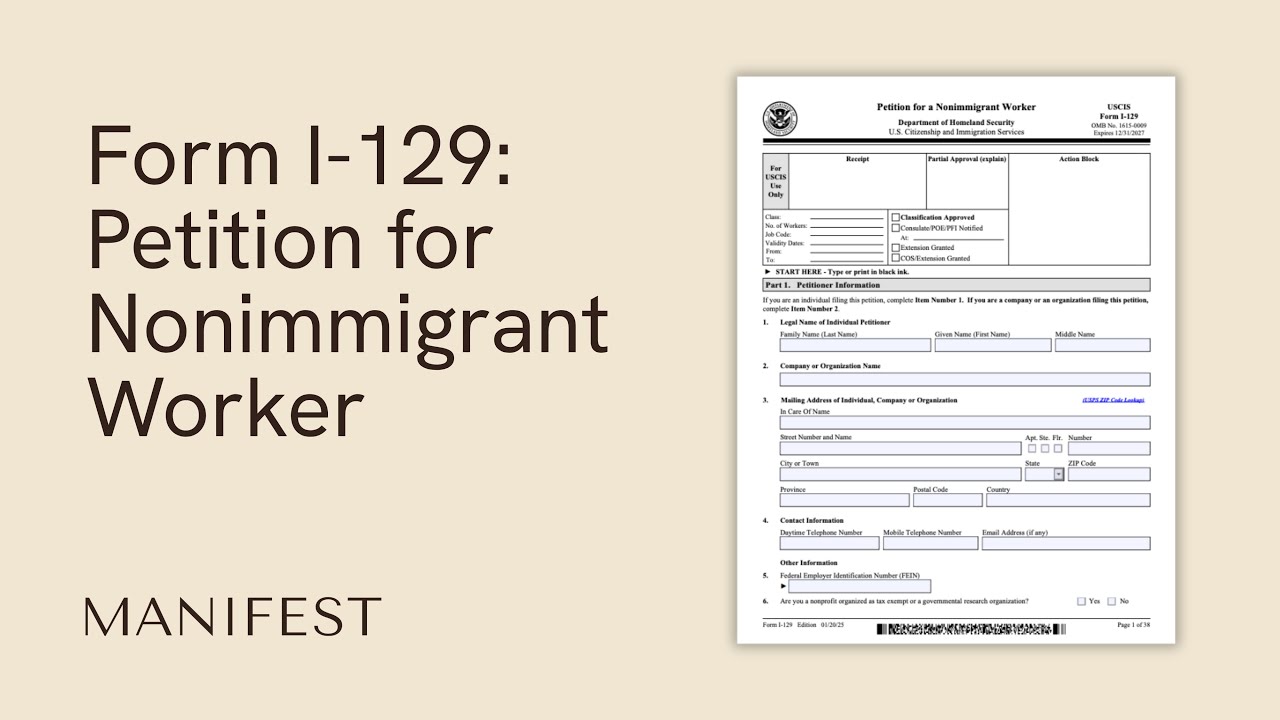Understanding Employer Responsibilities in Sponsoring Foreign Workers
Employers who seek to sponsor foreign workers face a complex and carefully regulated process in the United States. The legal framework requires adherence to specific filing procedures, strict documentation, and a demonstration that no qualified U.S. worker is available for the role. Proper navigation through this process is essential to maintain compliance with immigration laws and to ensure the stability of the employees’ status.
This article explores the key requirements for employers sponsoring foreign workers, focusing on the obligations surrounding Form I-129 and the PERM Labor Certification process, the necessity of proving unavailability of qualified U.S. workers, and the crucial importance of accuracy in all filings to avoid penalties or denials. It also highlights best practices for employees to maintain personal records and outlines how legal assistance can facilitate a smoother sponsorship experience.
Form I-129 and Its Role in Sponsorship
One of the primary tools employers utilize when sponsoring foreign workers is Form I-129, Petition for a Nonimmigrant Worker. This form is used to petition the United States Citizenship and Immigration Services (USCIS) for temporary employment-based nonimmigrant visas. Depending on the visa category under which a foreign worker is sponsored—such as H-1B, L-1, O-1, and others—employers must complete and submit Form I-129 along with supporting documentation.
Filing Form I-129 accurately is a fundamental step. It involves providing detailed information about the nature of the job, the qualifications of the foreign worker, and the terms of employment. Employers must ensure that all information is truthful and precise, as inaccuracies can lead to petition denial or penalties.
PERM Labor Certification: When and Why It Is Required
For permanent employment-based immigrant visas (such as EB-2 and EB-3 categories), employers are usually required to go through the Program Electronic Review Management (PERM) labor certification process managed by the U.S. Department of Labor (DOL). PERM certification attests that the employer has tested the U.S. labor market and confirmed that there are no qualified, available, and willing U.S. workers for the position.
The steps in the PERM process include:
- Conducting recruitment activities, including advertising the position and interviewing candidates.
- Filing ETA Form 9089 with the Department of Labor containing recruitment results and attestations.
- Obtaining certification approval from the Department of Labor before filing an immigrant visa petition.
Employers need to be meticulous in each phase of the PERM process, as mistakes or procedural oversights may result in audits, delays, or denials.
Proving No Qualified U.S. Worker Is Available
A critical legal requirement in many employment-based immigration categories is demonstrating that no qualified U.S. worker is available to fill the job. This requirement serves both to protect the U.S. labor market and to validate the need for foreign labor.
To satisfy this requirement, employers must conduct bona fide recruitment efforts that are well documented and comply with regulatory guidelines. During the PERM process, this involves placing advertisements in specific media, conducting interviews, and maintaining detailed records of all recruitment activities.
The recruitment process must show that:
- Recruitment was conducted in good faith and in accordance with DOL rules.
- Available U.S. workers were considered but found unsuitable due to lack of required qualifications or other lawful reasons.
- The employer is offering prevailing wage for the position to attract prospective candidates.
Failing to adequately prove the unavailability of qualified U.S. workers can not only cause petition rejection but also lead to significant legal and financial repercussions.
The Importance of Accuracy and Documentation in Filings
Accuracy in filing visa petitions and labor certifications cannot be overstated. Whether submitting Form I-129 or PERM applications, every detail must be accurate and supported by proper documentation. Errors, omissions, or misrepresentations may prompt requests for evidence, audits, or outright refusals.
Some key points regarding accuracy and documentation include:
- Ensuring all information about the job position matches recruitment advertisements and internal job descriptions.
- Verifying credentials and work history of the foreign worker to align with visa requirements.
- Attaching all mandatory supporting documents such as wage determination, recruitment logs, and labor condition applications.
Meticulous record-keeping and attention to detail reduce the risk of delays and denials, thus facilitating a smoother approval process.
Employee Record-Keeping: Why It Matters
Employees sponsored by employers for foreign work visas also have responsibilities regarding document management. It is imperative for sponsored workers to keep copies of every submission made on their behalf during the sponsorship process.
Maintaining personal records provides several benefits such as:
- Verifying the accuracy of the information presented in petitions and certifications.
- Facilitating responses to any requests for evidence or inquiries from USCIS or other agencies.
- Serving as reference documents for future immigration procedures or extensions.
Employees should request copies from their employers and maintain organized files to safeguard their immigration status.
Ensuring Compliance and Long-Term Stability
Proper sponsorship and compliance with immigration procedures are fundamental to the long-term stability of both employers and foreign workers. Employers who adhere to standards mitigate risks associated with visa denials, audits, or potential investigations. Meanwhile, employees benefit from secure legal status and clarity in their employment conditions.
The sponsorship process requires collaboration, transparency, and precision. Businesses and their sponsored employees must work closely to achieve timely and successful outcomes.
Seeking Professional Legal Assistance
Given the complexities involved in sponsoring foreign workers, obtaining qualified legal assistance is often invaluable. Immigration law is continually evolving, and professional guidance ensures compliance with the latest regulations and best practices.
Legal experts can assist with:
- Reviewing and preparing visa petitions and labor certifications.
- Advising on recruitment processes and regulatory requirements.
- Representing cases before government agencies and addressing Requests for Evidence.
If you require proper legal help with foreign worker sponsorship, reach out through the communication methods provided in our bio or send a private message for personalized consultation.
Employer sponsorship of foreign workers involves a rigorous process requiring diligent completion of Form I-129 or PERM labor certification, depending on visa types. Demonstrating the unavailability of qualified U.S. workers is a vital but demanding step underpinning the approval of these petitions.
Accuracy in filings and thorough documentation safeguard against penalties and refusals. Employees should actively maintain records of all submissions to protect their interests. Engaging qualified legal counsel further enhances compliance and provides stability for all parties involved.
The commitment to a meticulous and lawful sponsorship strategy fosters long-term success in employing foreign talent in the United States.
Legal Marketplace CONSULTANT is a company specializing in comprehensive legal services for businesses and individuals. Our expertise includes immigration law, visa assistance, and employment sponsorship advisory. Our professional team consists of experienced lawyers, consultants, and compliance experts dedicated to ensuring smooth and lawful foreign worker sponsorship.































